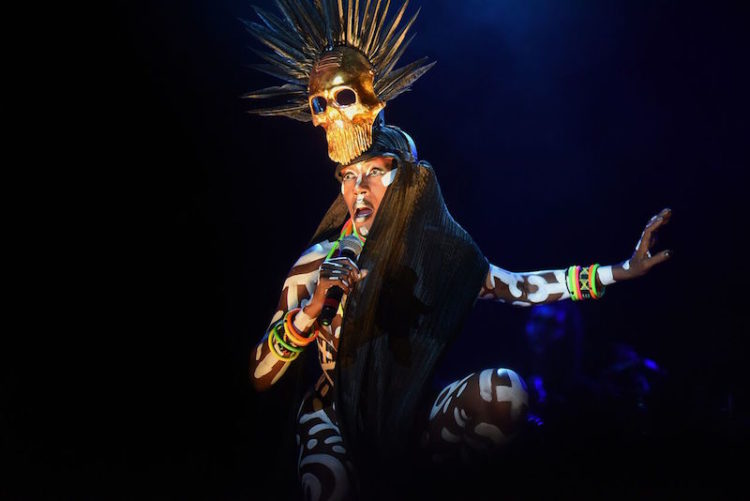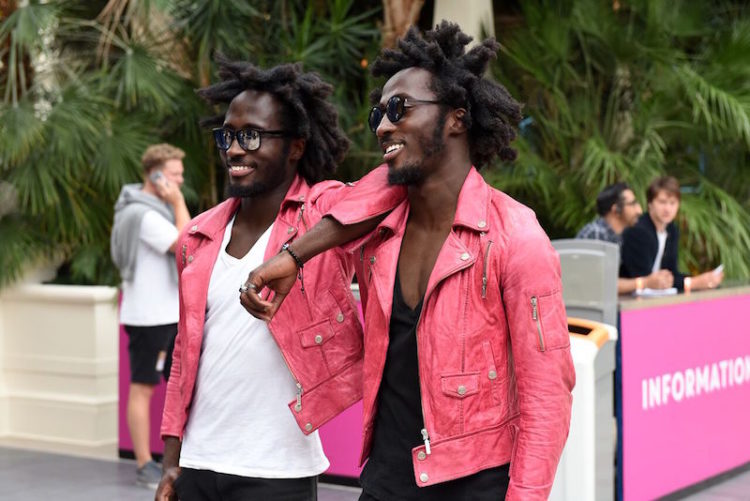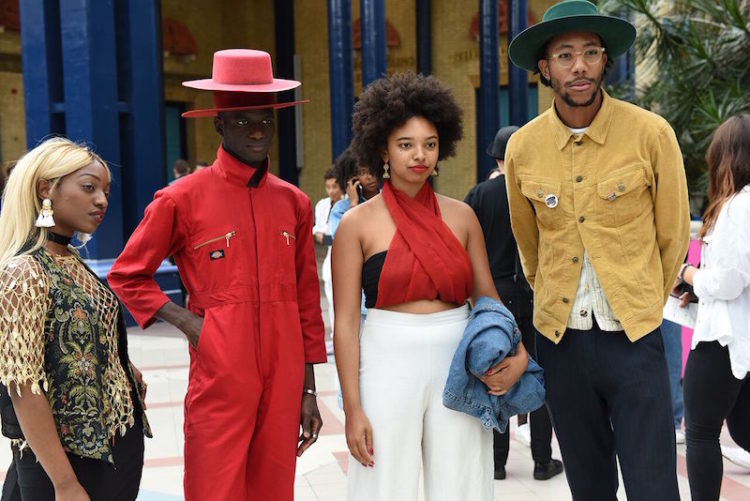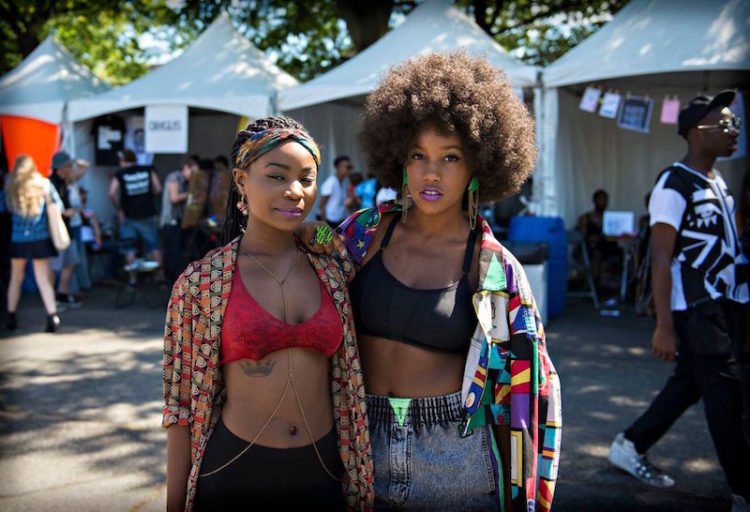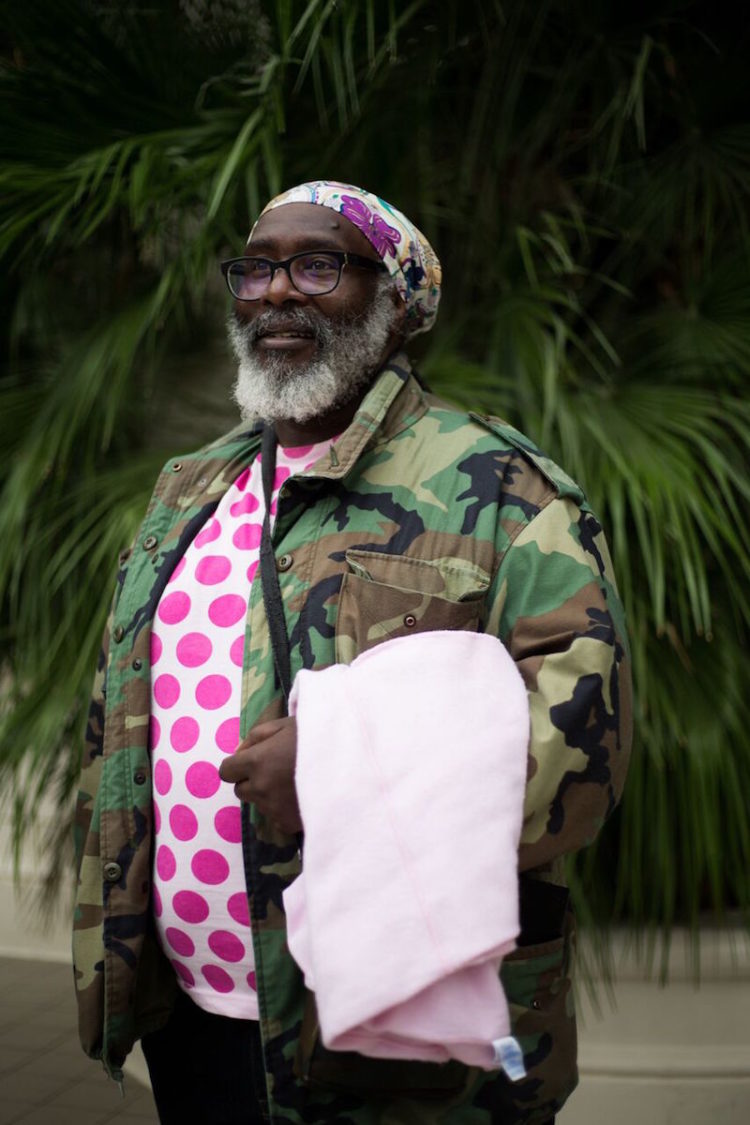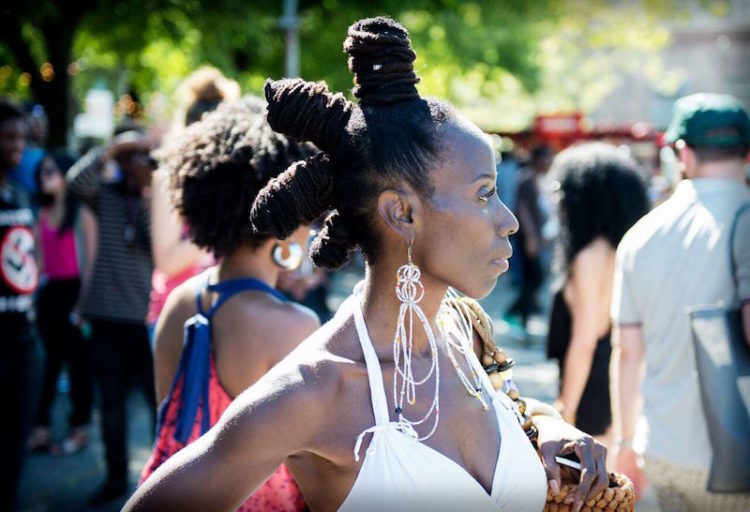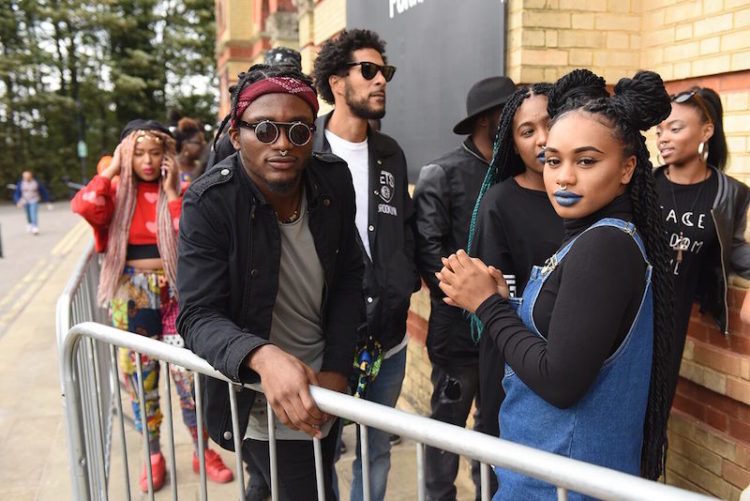September 24, 2016. Grace Jones presided over an extraordinary lineup that included SZA, Akala, Kwabs and GoldLink to name a few. The AfroPunk festival had finally landed in London.
This was the first time I felt wholly comfortable in my own skin. And one of the few times I felt complete serenity in a setting comprised of mainly black people.
Now, before you prepare to attack me, I’m not scared of black people and there is certainly nothing like the elation that comes from interacting with other black people. But there have been times when I’m around a sea of black youth and felt a little uneasy. I don’t totally identify with the prevalent depiction of black British masculinity today. I wouldn’t say I’m an outsider but in recent years I’ve realised that my mindset, interests and ways of doing things tend to be at odds with fellow black males. More often than not, I feel isolated and alienated when present in particular black spaces.
This is why AfroPunk London was such a metamorphic occurrence. Never ever had I seen so many black people be so carefree and just vibe. Even if the droves of attendees only felt this way for just that moment, the sensation of unity, self-expression and unsullied satisfaction was priceless. Matthew Morgan, the founder of the festival, has more than accomplished what he set out to do: create a safe space for black misfits and outsiders.
Before it became an international festival, AfroPunk was an attitude. A school of thought spearheaded by filmmaker and tattoo artist James Spooner, it shed light on an untapped community of African-Americans within in the overwhelmingly white punk rock scene.
The documentary tackled exile, loneliness, interracial dating and black emancipation.
In 2003, he shot a documentary entitled ‘Afro-Punk: The ‘Rock N Roll Nigger’ Experience’ showing how a group of black punks navigate assimilation in this Caucasian-centric world. All this while tackling criticism from their fellow African-Americans for taking part in ‘white culture’. The documentary tackled exile, loneliness, interracial dating and black emancipation.
Its glowing reception at numerous film festivals throughout the United States revealed to Spooner that people like him and those interviewed weren’t so strange after all.
https://www.youtube.com/watch?v=fanQHFAxXH0
Spooner soon started a website and message board where Afropunks could congregate online. He collaborated with Morgan to create The Liberation Sessions, a three-day event celebrating black artistry through music, art and film. The first official AfroPunk Festival took place in Brooklyn, New York in 2005.
It was a sanctuary for black kids on the peripheries of mainstream black culture where diversity and defiance could be celebrated without restriction or harassment. Undoubtedly filling a void in the festival sphere, it was termed ‘the other black experience’. Fewer than 500 people attended.
By 2008, the festival was growing and attracting bigger crowds. These crowds began to span a broader set of demographics. AfroPunk, now a formal organisation and business, started to change to deal with demand and a more diverse audience. Left-leaning R&B and hip-hop acts started to take centre stage. Spooner, seeing something he created for outcasted blacks become so far removed from its original values, decided to divest himself of involvement with the festival in 2008.
Many individuals share his frustration over the festival’s growing commodification. It’s supposedly no longer ‘punk’ in the acts it houses nor in its principles. Since Morgan’s acquisition of the brand, the festival has included – in addition to punk bands/musicians like Bad Brains, TV on the Radio and Fishbone – artists such as Kelis, Kelela, Theophilus London, Kaytranada and Tyler the Creator.
None of these artists falls under the umbrella of the ‘punk’ genre but they arguably inhabit a complex space. They’re too avant-garde for festivals such as Essence or Wireless; they may have previously played sets at these festivals but their style of music would have been in the minority. Or, in the case of Wireless, they played at a time when the festival wasn’t as commercial as it is now. Mark Reynolds, contributor for PopMatters, wrote: ‘They’re all likely to be unknown, mysterious beings to anyone not used to scoping the Internet for signs of alt-black life.’
These acts have fanbases who wouldn’t necessarily be thrilled to go to one of those festivals. Though not punks, they’re blacks who also don’t connect with conventional portraits of blackness. They too need representation and spaces where they can connect with each other. Matthew Morgan saw the importance of this and by his branding, has expanded the definition of what it means to be an ‘AfroPunk’.
Living and finding joy as a person of colour is an act of radical resistance.
Despite its connotations of rebellion and anti-establishment, punk is still mostly represented by white people; cishet white men to be exact. Since its origins, the punk liberation has failed to be intersectional. And so black people have to be more all-encompassing when determining what ‘Punk’ means to them. There is a uniquely racialised and gendered experience that has an impact on how they move within these subcultures.
Why shut out individuals that do not identify with ‘authentic’ punk culture? As poet and writer Hanif Abdurraqib wrote: ‘I think anything that rebels against expectations is punk rock. Living and finding joy as a person of colour is an act of radical resistance. There are few things more punk rock than that.’
AfroPunk has not remained scandal-free. When news broke that M.I.A. would be headlining the festival’s very first London excursion, any excitement was instantly soiled and tainted.
Why would AfroPunk enlist someone who is not black to headline with so many black British acts to choose from? It also seemed absurd given M.I.A had recently been criticised for her disparaging remarks towards the Black Lives Matter movement.
AfroPunk received a huge backlash and threats to boycott if she was to stay in the lineup. Eventually, she was replaced with Grace Jones as the organisation proclaimed in a statement ‘We are excited and honoured to do our first AFROPUNK Festival in London and want to do it right’.
The festival’s decision to start charging admission had also been criticised. The costs to keep the festival a free affair were becoming unsustainable. In order for the festival to remain grounded in tangible change and social justice, the Earned Ticket programme was implemented. Attendees could pay with their time via a number of volunteer or activist opportunities in their own neighbourhoods.
AfroPunk also makes efforts to support black businesses and initiatives. Festival goers are given the opportunity to buy products from grassroots organisations.
‘Blackness’ is not monolithic – just look at the varying factions on social media. AfroPunk is for black people who like more than typically ‘black’ things. It is a cosmopolitan universe for ‘woke’ individuals to commune and discuss the dismantling of confining barriers and structures in their lives. It is a vanguard for alternative black culture where differences are encouraged. Even James Spooner still recognises what his film was able to accomplish:
‘Whether they’re there to see Lenny Kravitz or they’re there to see one of the bands or they’re there just to be around a bunch of black people who aren’t laughing at them, that’s why I did it. That’s why I made the film.’
A group of blacks have decided to reimagine how they are portrayed and how to navigate their intra-racial bonds. It’s a goal that was also shared by members of The Black Arts Movement, The Harlem Renaissance and Afrofuturists. The difference is that this particular wave of black renovation isn’t sequestered by geographical location. With the festival now reaching London, Paris, Atlanta and recently Johannesburg, it is a new wave we all can participate in. Finally, we can all ‘get free’ together.
Images courtesy of AfroPunk

